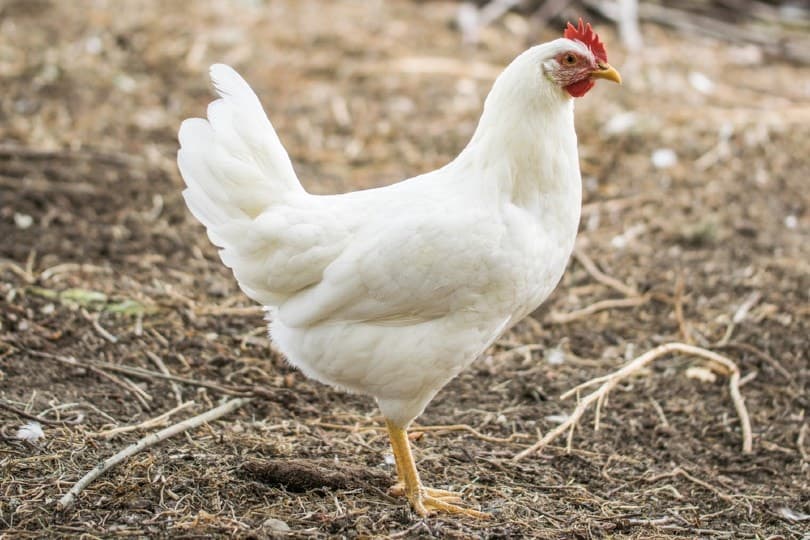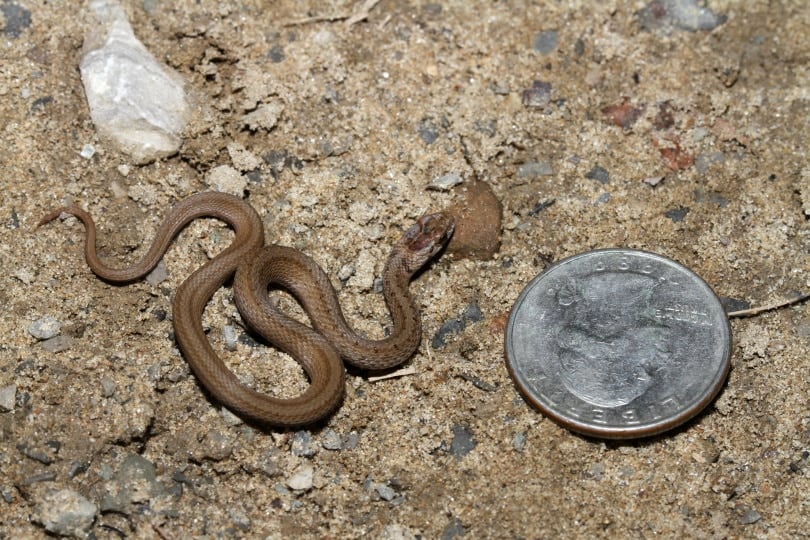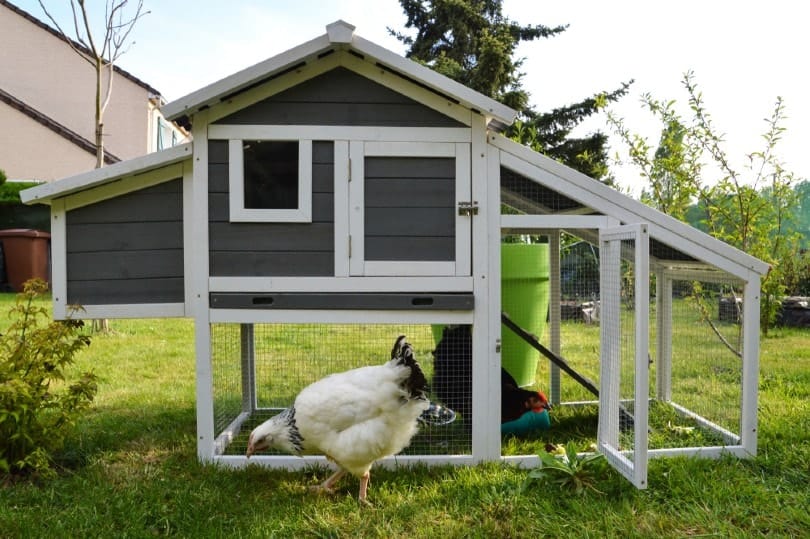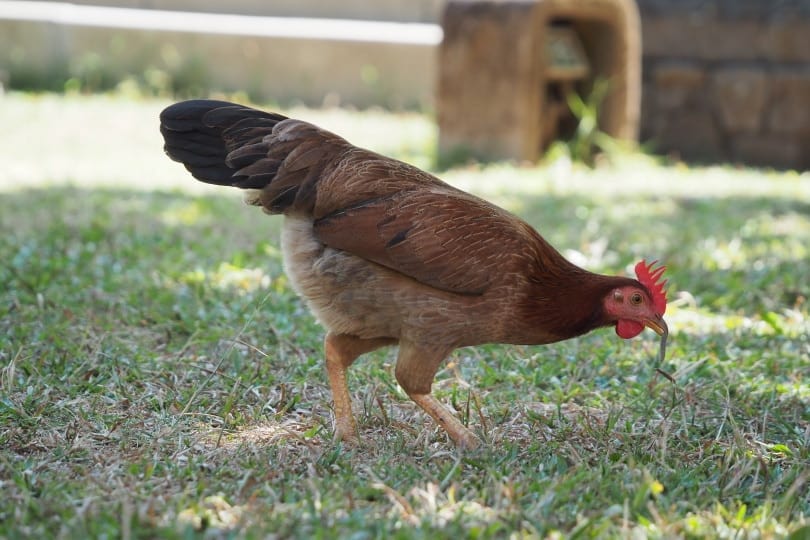Chickens are both omnivores and opportunistic feeders. If you let them forage in your backyard, they’re sure to stumble upon a wide variety of foodstuffs, including insects, spiders, grasses, and the vegetables in your garden. They aren’t picky animals, either. If your chickens find something interesting, it’s fair game. You may wonder if their diet includes snakes.
The answer is yes, the chickens will eat snakes if the reptile is small enough and not quick to escape.

Nutritional Needs of Chickens
The nutritional needs of chickens vary throughout their life. First, it depends on whether you’re raising broilers or the Leghorn type. A general rule of thumb is that the former is larger and grow rapidly because of selective breeding. The latter are smaller because they’re devoting their resources to laying eggs.
Then, you must consider the age of the birds and whether they’re breeding or molting. Like other animals, the nutritional needs of poultry depend on its life stage, with younger birds needing more of the good stuff than an adult, non-breeding, or laying chicken. Snakes can provide an excellent source of protein and other nutrients to support the health of your birds.
The other concerns rest with calcium for egg-laying chickens to ensure proper shell development. Of course, a high-quality diet is the best way to make sure your birds’ needs are met. You can think of the occasional snake as a treat.

Snakes That Chickens May Eat
Size is the primary consideration of whether your chickens will eat snakes. Any hatchling is small enough for your bird to catch. Some species, such as the Brown Snake, don’t get very big and are abundant throughout the United States. These reptiles are unlikely to hurt your chickens, either. That explains why they are prey for many other animals, including hawks and domestic cats.
The Flipside
If your chicken encounters a snake, it’s probably just by chance. However, that can also go the other way if a larger reptile happens upon your birds. Many species are big enough to take pullets or eat eggs. Some can even take adult chickens if they get inside of their coop. It’s certainly not something you want to encourage. Instead, it’s best to get rid of these reptiles if you notice them in your yard.

Controlling a Snake Problem
Snakes are also opportunistic predators. Many species take a wide range of prey. It’s simply a matter of finding something they can swallow. As with most pests, prevention is the best remedy. That starts with securing the chicken coop with an automatic door. It will keep the birds inside and the pests out of it. You can also install flashing around the bottom to provide an impenetrable barrier to the snakes.
Another option is to raise the height of the coop off the ground. While snakes can climb, it’ll provide an effective deterrent. You can also attach hardware cloth around the posts to make it more difficult for the reptiles to gain access.
Sometimes, these reptiles find your chickens accidentally if they’re going after other prey, such as rodents. That fact offers another host of solutions for controlling a snake problem. Anything you can do to keep the mice and squirrels away will likely send the snakes in a different direction for finding food.
That means simple measures, such as keeping the area around the coop free of grass, weeds, and branches. This vegetation provides cover that can make the pen more hospitable to these pests. We also suggest repairing any holes or damage to the coop. It doesn’t take a large opening for a mouse to get inside it. Of course, traps will provide a permanent solution to the problem.


Final Thoughts
Chickens are fascinating animals that show the lengths they’ll go to get a meal when you find one munching on a snake. Unless it’s a large reptile, it won’t hurt your birds. As elusive as snakes are, it’s not likely to be a common occurrence, either. Just put it down to a resourceful chicken getting some extra protein in its diet.
Featured Image Credit: Cornelius Krishna Tedjo, Shutterstock
